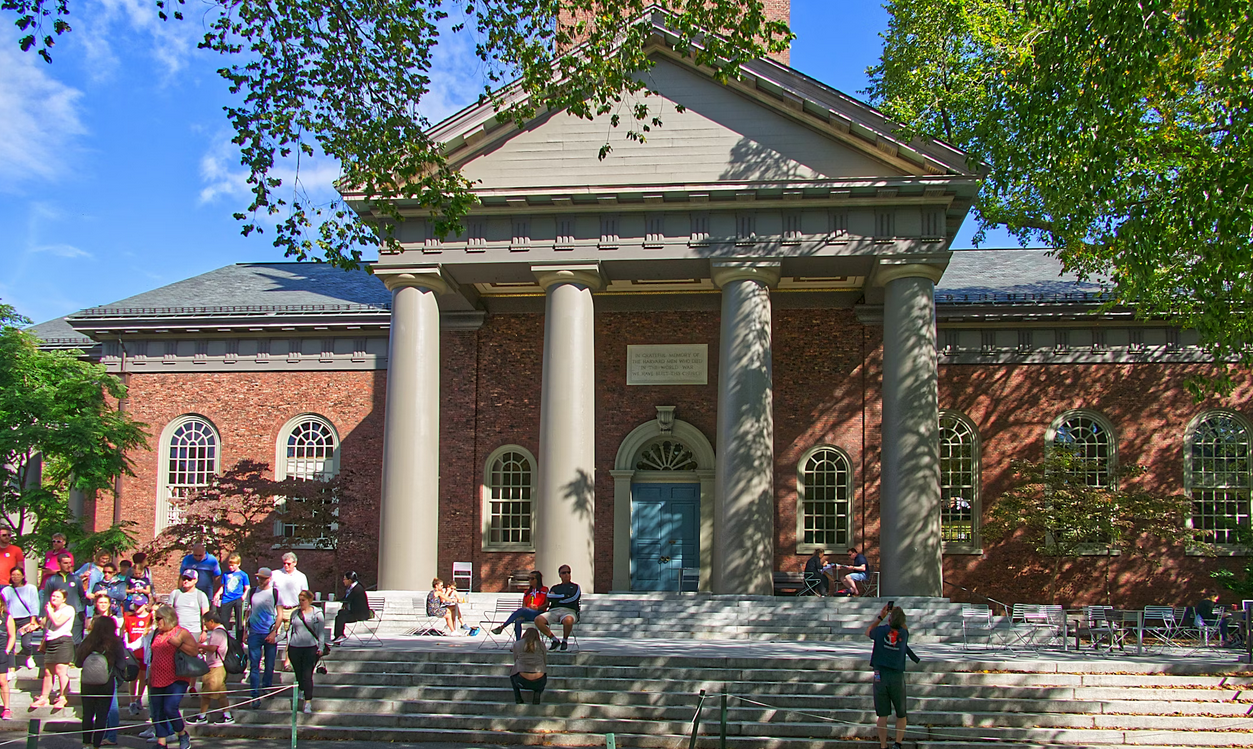
Experienced UIUC graduate student specializing in Math, Computer Science, and Writing
Availability:
Every day, 10:00am-10:00pm PST
Subjects:
Math
Computer Science
Writing
International Students are Enrolling in the US at Fastest Rate in Decades
Last Updated:

- Applications to the Ivy League schools plus M.I.T, Duke University, University of Chicago, and Stanford have tripled since 2002 to almost 600,000 total
- As some universities drop standardized testing and students go to elite prep programs to get high scores, students will have to stand out based on essays and extracurricular activities
- Even though fewer jobs require four-year degrees and state schools are great, top schools still draw the most attention from researchers and innovative companies
As debates continue about college affordability and limited seating, US colleges are seeing a massive spike in international students applications and enrollment.
Over 1.5 million students, or 5.5% of the total US student body, are international with most coming from India and China. 16% of these students live in California, which is the most of any state followed by New York. STEM and Management programs are their most popular majors, especially Computer Science and Business Administration.
Seeing the increasing competition for college seats has made many native Californians concerned about how international students are affecting their chances to grab opportunities. Many colleges charge much more tuition — sometimes two or three times as much — from international and out-of-state applicants to balance their budget, particularly during economic downturns.
This means international students might be accepted in place of domestic students to help the university’s budget, which many Californian families feel is unfair. In fact, the campuses now operate under a cap on the number of international students they can enroll as part of a deal with the state government in exchange for more funding.
With that in mind, here are some factors to consider about the value of accepting international students when looking at international admissions policies.
Importing Talent Promotes Economic Growth
International students contributed $40 billion to the US economy during 2022-2023 alone as part of a post-COVID rebound. That was an increase of about $6 billion, or almost 20%, from the previous year. California, New York, Massachusetts, Texas, and Illinois are the biggest beneficiaries of this growth, with Illinois replacing Pennsylvania in the top 5 recently.
They also contributed over 360,000 jobs to the economy — an almost 10% increase from the previous year. In fact, some estimates show that for every 3-5 international students, a new job in the US is created and supported. About 1 in 4 international students who get Master’s degrees from US colleges find jobs in the state they graduated in, with the majority in STEM areas that have a labor or talent shortage, which means they push companies forward to create new jobs and products.
Some of the talent international students bring is in entrepreneurship. In 2018, they founded 21 billion-dollar startups. In 2022, that number increased sevenfold to 143 billion-dollar startups. Refugees, immigrants, and international students coming to a new place to start their own businesses is one of the oldest American traditions there is. It creates a natural filter for ambitious, hard-working talent that hunts for better opportunities even if they have to uproot their whole life. If they didn’t start companies in the US, those jobs and tax revenues would be in competing countries.
Cultural Collaboration Boosts Student Success
International students offer a lot to US universities from diverse global perspectives to cross-cultural intellectual exchanges.
Studies show that domestic students who actively interact with international students have better confidence, leadership skills, and intellectual growth. Many of the international students I interacted with, including those from China and Brazil, brought new ideas with them that enabled me to grow my worldview.
In the US, it can be easy to develop a narrow perspective of other countries and cultures. American media and products are in huge demand across the world while very little foreign media gets mainstream popularity in America. KPop, Bollywood, and Japanese anime have been making great progress over the last few decades, but there’s still a difference between appreciating art from another culture and understanding the culture and how its people interact within it.
By the time you consume foreign media, it’s been filtered first by the systems in another country, then by the systems in your country, then by your own cultural perspectives. Consider the famous Shakespeare in the Bush article, where an anthropologist visits a tribe to tell the story of Hamlet only to see that the tribe used their own values about family dynamics to arrive at a very different interpretation.
Media and art are interesting cultural exchanges, but they don’t replace a personal connection. My time with international students helped me understand more about the lived experiences of people within different cultures that their media overlooks, the same way Hollywood or the US music industry doesn’t reflect the lived experiences of everyday people. Everything from family dynamics to beliefs about health and happiness can look very different in new cultures, and having the tools to both understand them while examining your own is an essential skill in a globally connected society.
Global Participation in Academia
By building on personal connections formed with people from diverse cultures, researchers also gain the ability to collaborate with researchers from other countries whose experiences lead to expertise in new areas.
Every research department is different with a unique blend of specialities and opportunities. For example, lots of Indian colleges have a strong agricultural and environmental science focus due to the importance and diversity of farming in the economy. The government of India works closely with universities to promote agriculture research, programs, and scholarships. Some of the AI hackathons I’ve seen that were hosted by Ivy League schools had a vertical for agricultural technology where the sponsors are interested in applying new products in India before the US.
By bringing international students here, the US gains a skilled worker who can collaborate with their home country’s industry and research to share those innovative technologies more broadly. One of the professors I worked with at UC Irvine worked closely with graduate students from China and visited Beijing for conferences. When I discussed papers with other researchers, we noticed an interesting pattern. The papers with authors from China were focused on finding and improving the applications of AI, especially practical use cases in urban planning and surveillance. As US researchers, we often prioritize new theories and algorithms to push the boundaries of our knowledge. Global academic exchanges allow us to benefit from the best each country has to offer from having different priorities and values.
Are Domestic Students Being Threatened?
As mentioned before, the University of California system’s international and out-of-state student number is capped at 18%. In 2017, a bill was proposed to maintain a cap of 10%, but it failed in favor of a deal where the UC system would adopt a policy of limiting nonresident students in exchange for $18.5 million to support enrollment growth.
Given the increasing competition for colleges, many students and their families feel that more — or even all — of these seats should be given to domestic students, with more funding coming from the state government to pay for it. This might mean more taxes or cutting impactful services Californians have come to rely on, but they argue that the increased chances to get into college may be worth it.
Something to consider is that the majority of the competition is still between domestic students. Eliminating the international talent pool still means you’re competing against the best and the brightest within California, a race that’s becoming increasingly competitive as students are deploying entire applications in middle school. You might not meaningfully raise your chances at all, while you would definitely be cutting the long-term economic benefits international students add.
Remember that those benefits include job growth, entrepreneurship, and increased economic output, because we can bring the best and the brightest from other countries to work with us. While getting into college can seem like your entire world if you or someone in your family is a student, most of your life is spent in the job market. The short-term benefit of getting into a college of your choice might come at the cost of long term opportunities that went to another country.
The best way to get ahead of the competition is to improve yourself. There will always be policy issues that can be a systemic disadvantage to you, but that shouldn’t stop you from pursuing your full potential. Work on your extracurriculars, maintain high grades, and practice for standardized tests. If you need help, remember that you can always find it with our tutors!
Related Articles

Why the Military is Ramping Up Funding for Colleges

U.S. News: A Beauty Pageant for Colleges That Must Go

International Conflicts are Slowing Down Research Projects

The Rise and Fall of Affirmative Action

The Racist Legacy of Legacy Admissions
